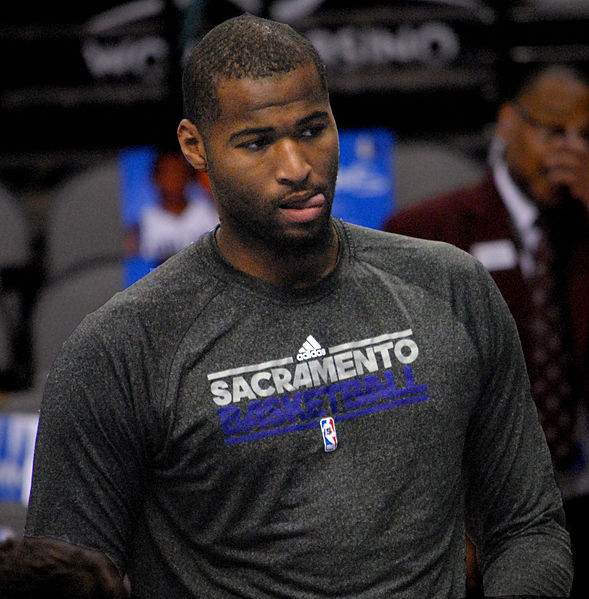Views expressed in opinion columns are the author’s own.
Another year, another NBA trade deadline — the date after which NBA teams can no longer swap players or draft picks to bolster their rosters. The days leading up to the deadline are always particularly active as teams’ general managers, perhaps fearing for their jobs, are inclined toward last-minute wheeling and dealing. It’s always an exciting time to be an NBA fan, but probably a harrowing one for players implicated in swirling trade rumors.
This year, the biggest deadline deal shipped perennial All-Star center DeMarcus Cousins from the Sacramento Kings to the New Orleans Pelicans. While interesting in the sports world, the trade doesn’t particularly move the needle as far as social importance or human interest. A little digging, though, shows a curious vignette of sports, social media and business.
Let’s look for some context. Cousins, drafted by the laughingstock Kings in 2010, is a preternatural talent. He also loves the team, and has talked at length about his desire to stay for his whole career. Off the court, he’s a wonderful human being, both deeply involved in community service and extremely reticent to broadcast it to the world. When pressed about why he doesn’t publicize his charity, Cousins offers a great take: “It shows you how fake this f—ing league is. Everything is about, ‘How can I make myself look good?’ … My mom would kick my ass if I helped someone across the street and said [handing over his phone] ‘Here, record this.'”
So that’s the man, the human interest. The team, blessed with a superstar for the first time in ages — and one who wanted to stay forever, at that — reiterated they wouldn’t be trading him. Then they did.
That’s not an injustice in the context of the world. Being paid millions of dollars to play a game is a pretty sweet gig, even if you’ve got to pull your kids out of school, leave your second home and move across the country to do it. It’s pretty tough to have a lot of pity for players who get traded, even the genuinely good guys who have been misled by management.
Let’s remember, though: The NBA exists to make money. The players are cogs in a large cash-producing machine, and the trade deadline is a reminder teams don’t deal so much with humans as they do with assets. Cousins probably got dealt because the Kings weren’t interested in paying what will surely be a $200 million contract in two years — and that’s totally fine. After all, it’s a business.
But here’s the catch. When players choose to invoke their only real weapon — free agency, or the ability to join any team in the league that wants to offer them a contract — they get raked over the social media coals. Last off-season, Kevin Durant hopped from his longtime franchise in Oklahoma City to the championship-contending Golden State Warriors. In doing so, he became an overnight league villain, a disloyal superstar taking “the easy way out.” Even the unquestioned face of the league, LeBron James, got crucified by fans for joining the Miami Heat in 2010.
What those criticisms miss is the business side of basketball. When players leave in free agency, disappointed fans are quick to invoke “loyalty,” as if ownership wouldn’t have shipped out their now-departed star in a second if the money was right. Players can have their lives uprooted via trade at a moment’s notice and without consent — don’t begrudge them the right to exercise their autonomy in free agency.
NBA careers are short, and the balance of power is overwhelmingly in favor of ownership. Cousins is a particularly poignant reminder that human stories don’t move the needle — profits do.
Jack Siglin is a senior physiology and neurobiology major. He can be reached at jsiglindbk@gmail.com.



